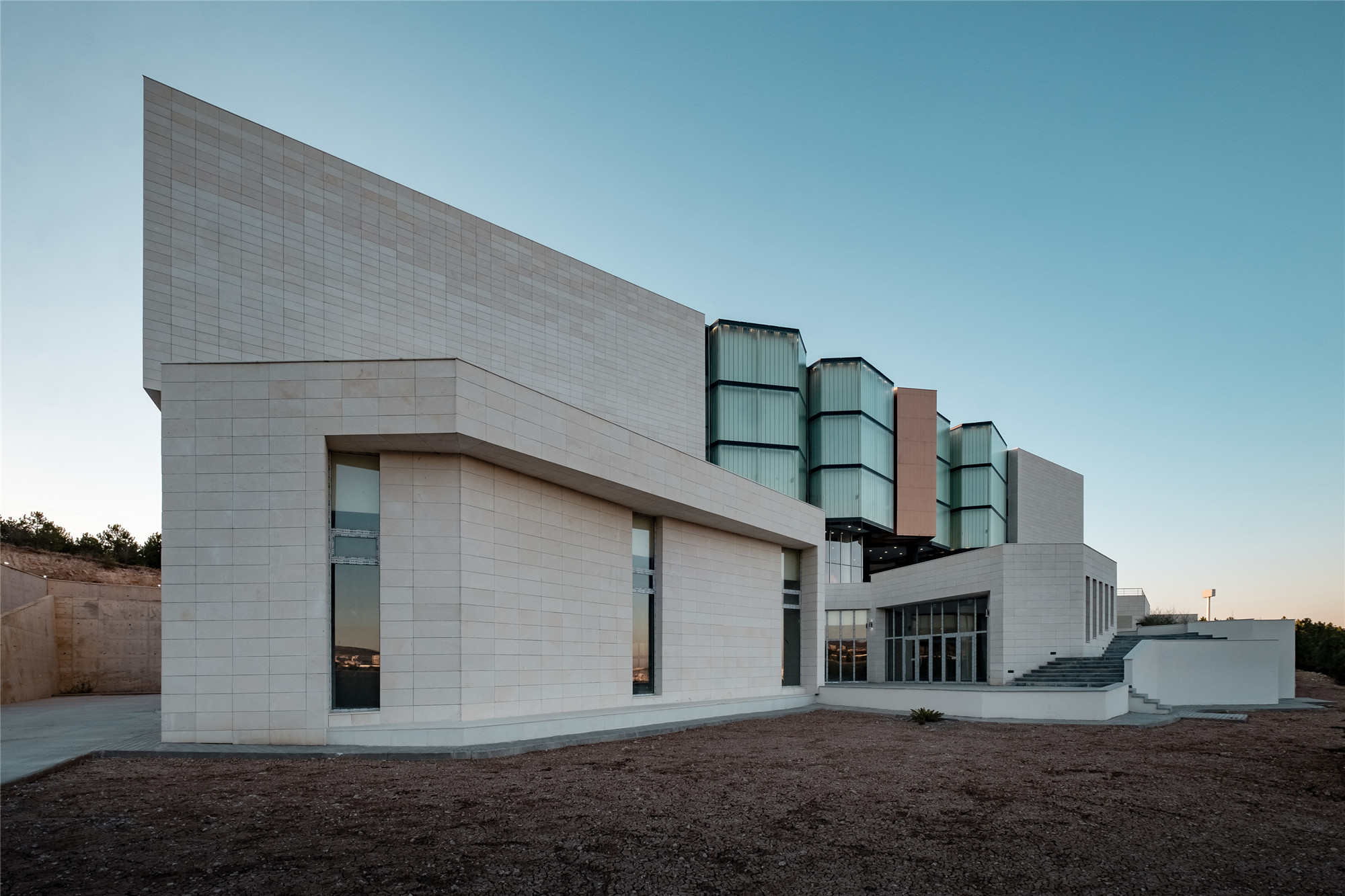
设计单位 Erkal Architects
项目地点 土耳其安卡拉
建成时间 2018年
建筑面积 6500平方米
项目位于安卡拉的哈斯特帕大学Beytepe校区外缘,内部设有科研设施,还有一处以生物多样性为主题的展览空间。Beytepe校区位于安卡拉的主要发展轴——向西通往埃斯基谢希尔省的高速公路上,但这条公路也给城市化和土地的分割带来了巨大压力。
Situated at the perimeter of the expanse of Hacettepe University's Beytepe Campus in Ankara, Museum and Center for Biodiversity building houses scientific research facilities and exhibition spaces devoted to scientific materials on the topic of biodiversity. Beytepe Campus is on the main development axis in Ankara, the westward highway to Eskişehir, which creates severe pressure of urbanization and land fragmentation.
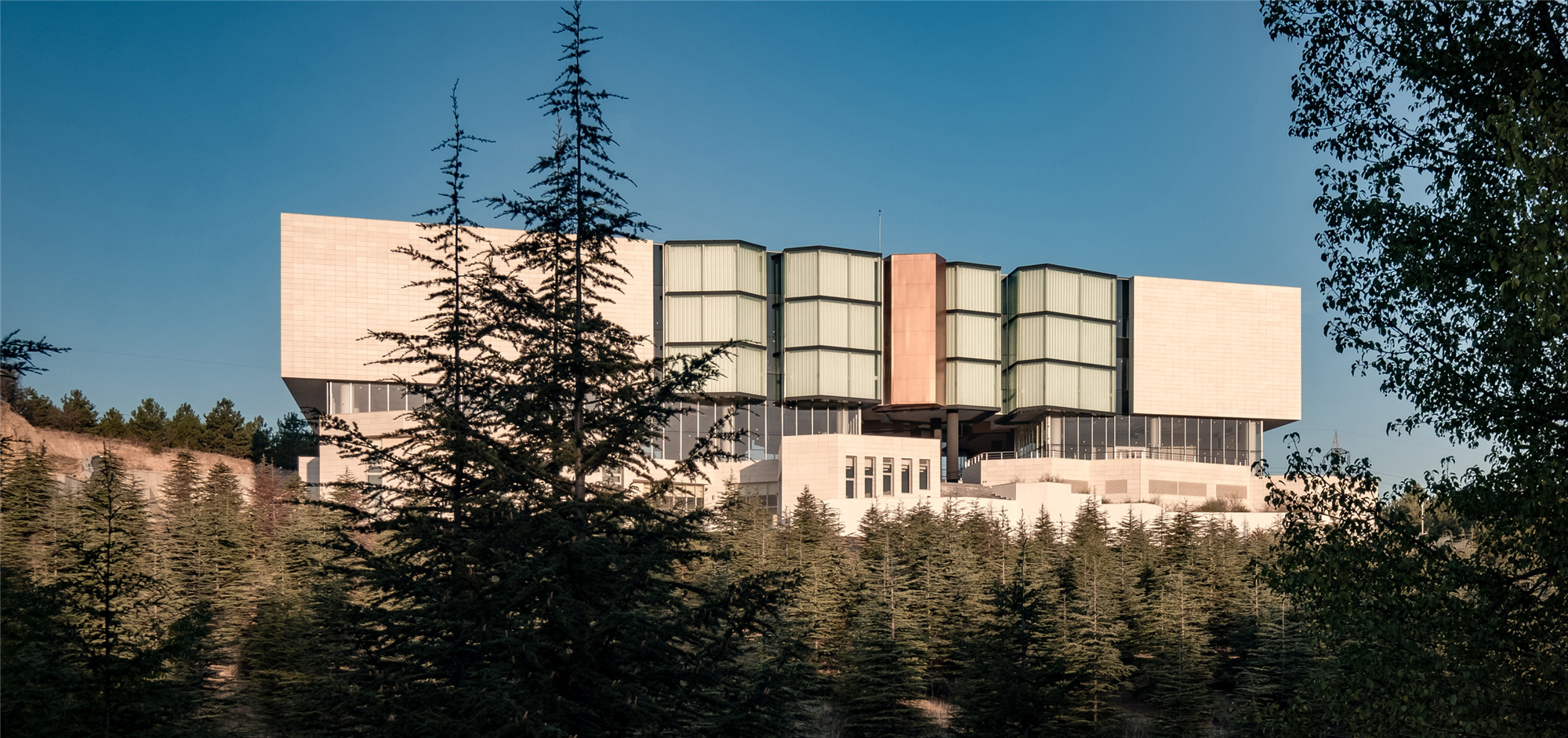

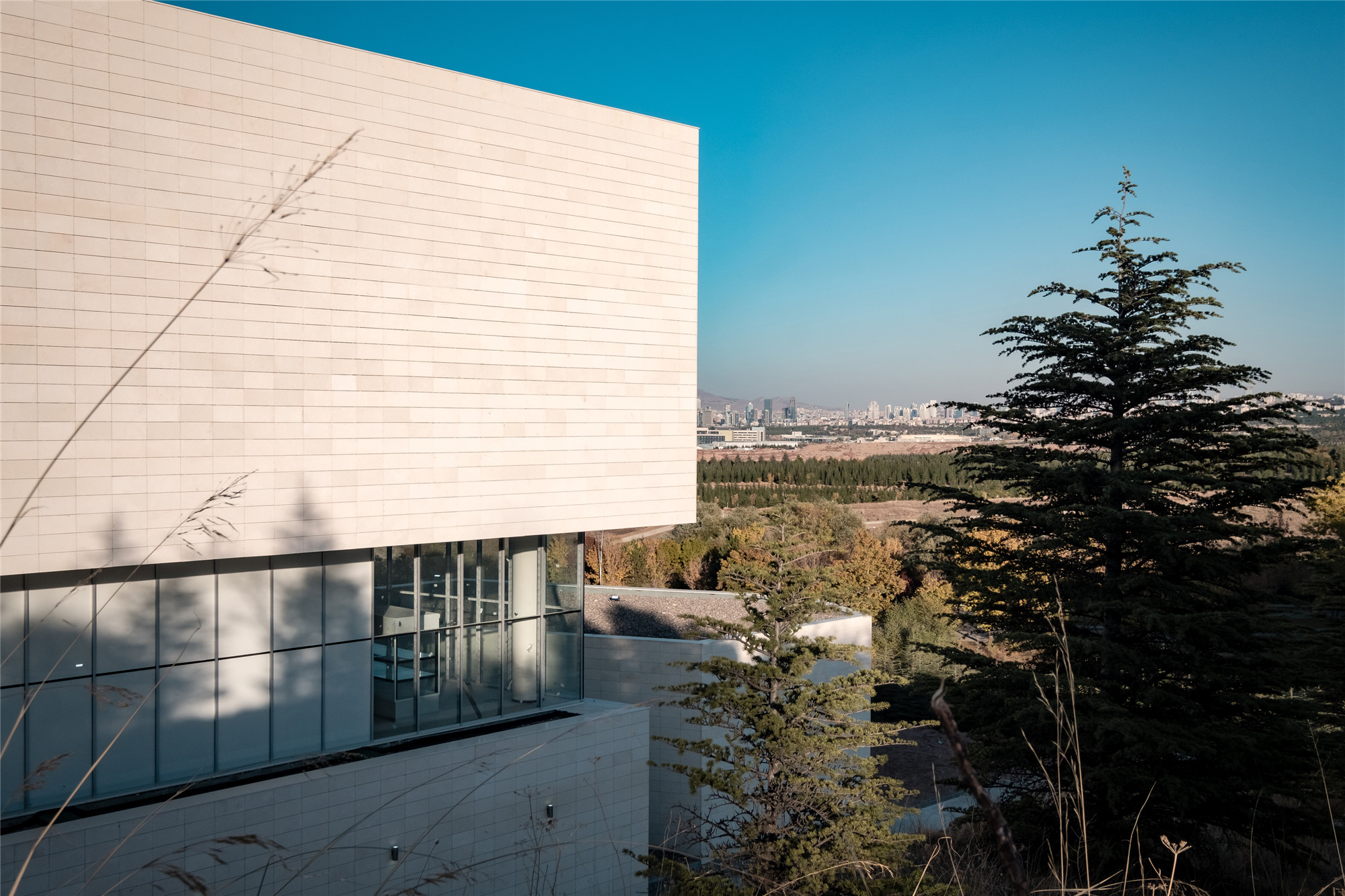
校园坐落于一片连绵的山谷和山脊中,这些山地也延伸到周边的校园中,其中还蕴藏着几处别样的生态系统。几个中长期的项目也在考虑范围内,希望这个快速增长的拥有500万人口的城市,在迁移城市中心的过程中可以保护好自然资源。而该建筑是保护行动中最为具体的尝试之一,不仅有助于对景观的保护,对科学界来说也有助于树立良好的社会影响。
The campus sits on a system of interconnected valleys and ridges that also extend to neighboring campus lands, with several particular valleys which still have a distinct ecosystem. Several long to mid-term projects are under consideration, aimed at preserving this natural resource within the shifting center of a rapidly developing city of five million people. Museum and Center for Biodiversity is one of the most concrete attempts within this scope; it will be a contribution for landscape preservation as well as a social stimulus for the scientific community.
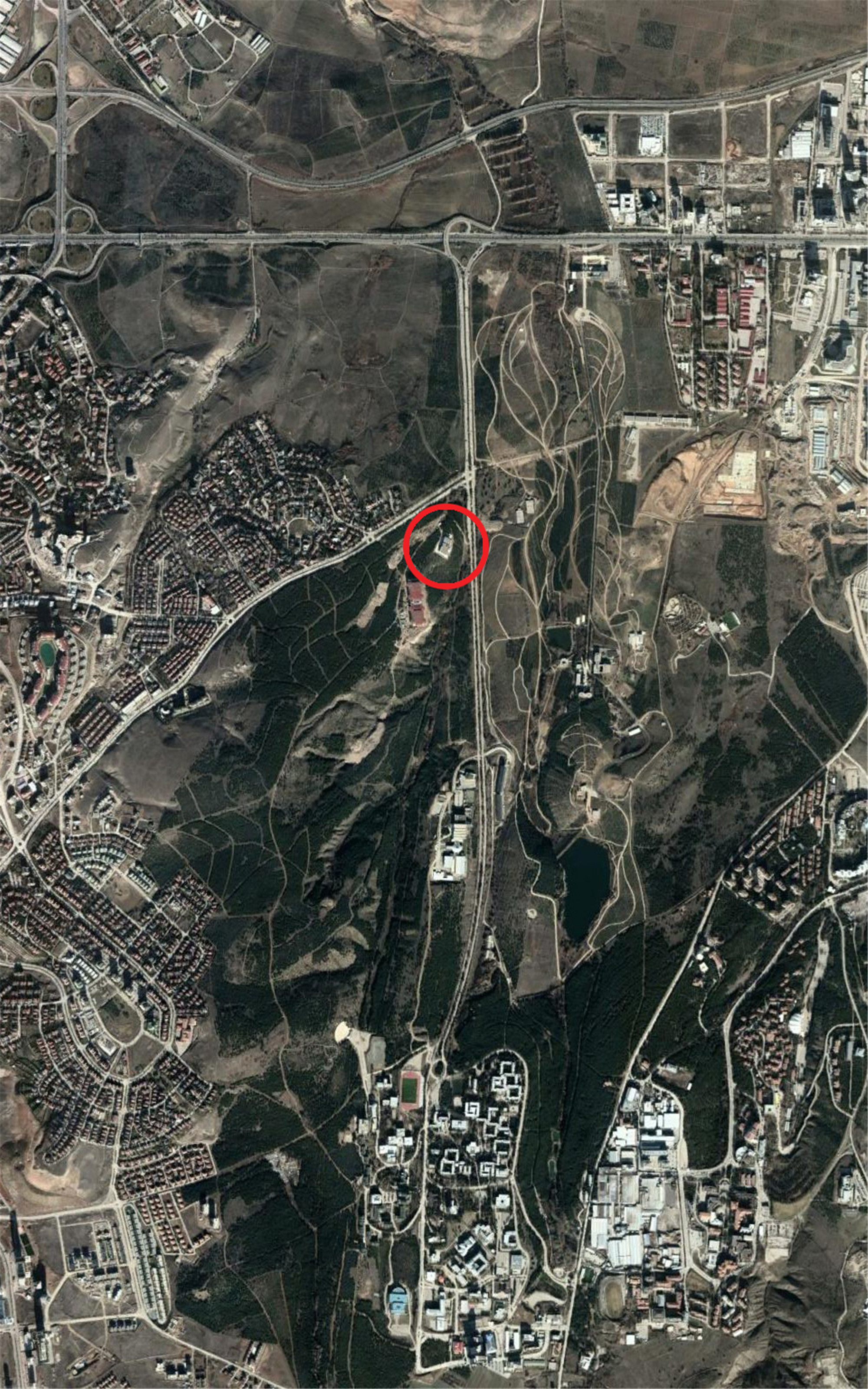
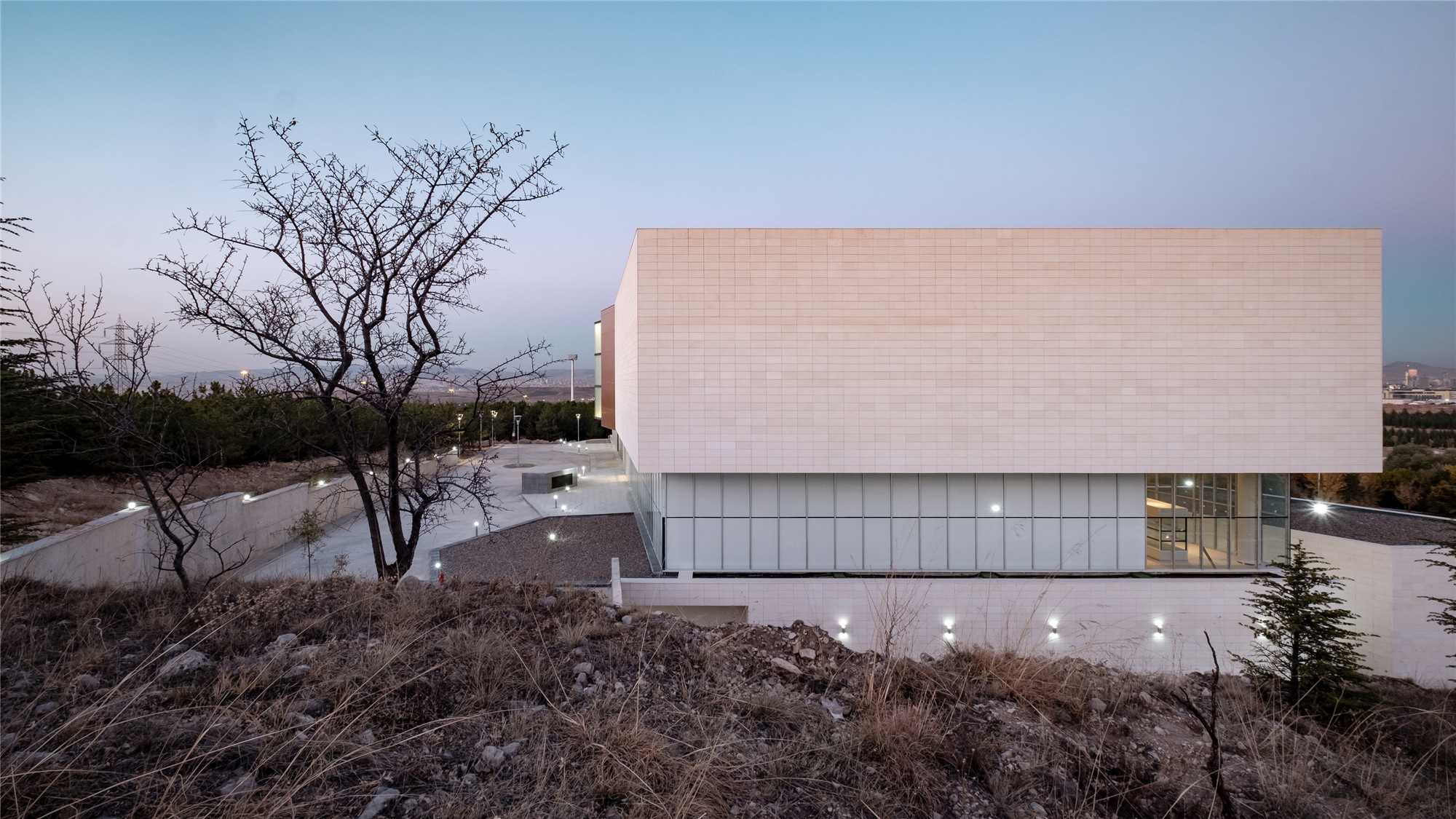
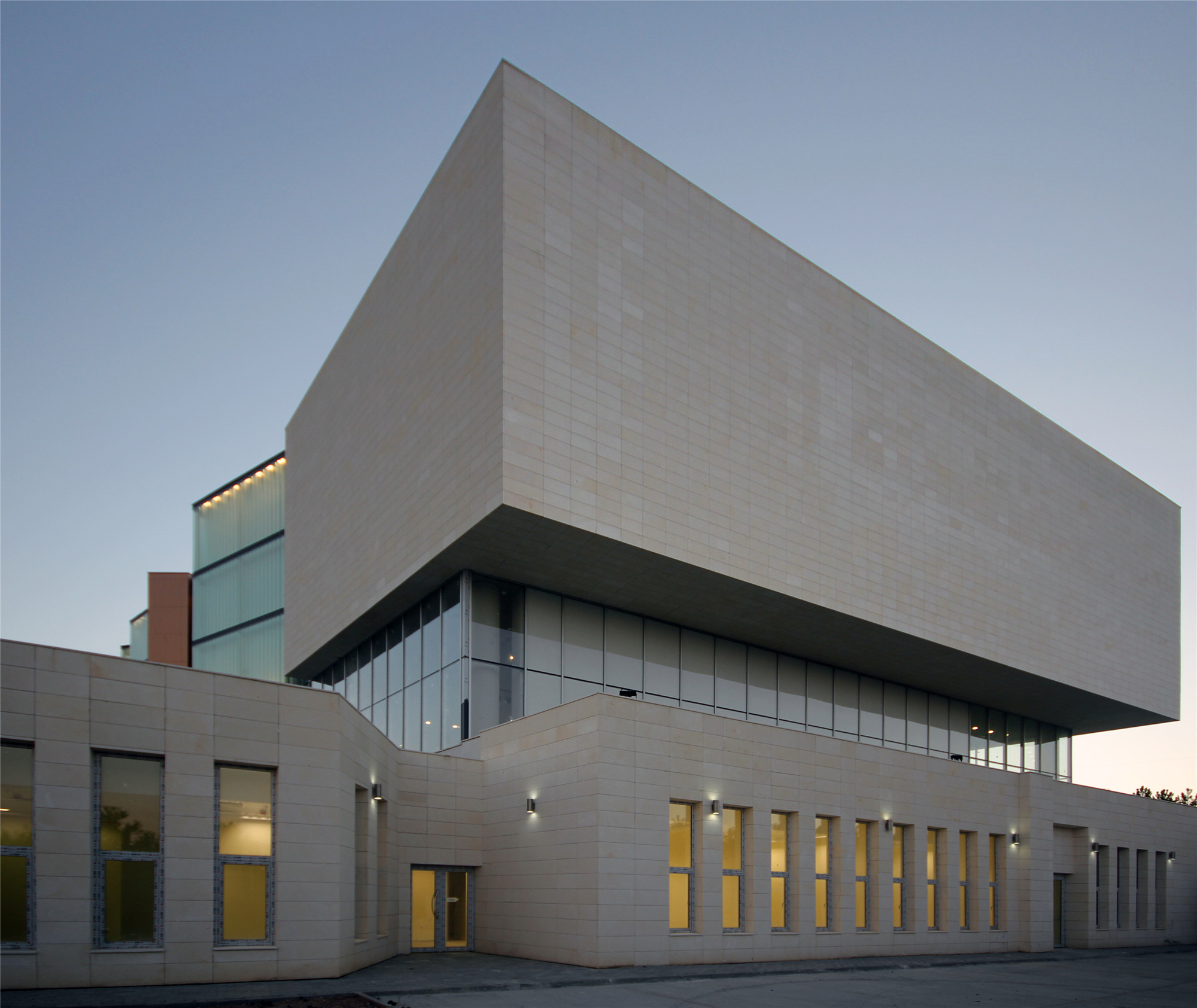
建筑坐落于朝东的斜坡上,这片场地本就被列入一项造林项目中。建筑周边同计划中保护地紧密相连,这片保护地中还包括了未来的国家植物园。在建筑的入口平台,可以一览这些花园与东侧城市的美景。建筑顺应了地势的走向,设置了一系列层叠的平台,试图在坚硬的表面与建筑体量中引入绿色植物。
The building sits on a slope facing east, itself being grafted within a forestation programme. The immediate vicinity has connections with a system of plots slated for preservation, which include the future National Botanical Gardens. The entry platform provides commanding views of these gardens and the city to the east. As the building yields to topography with a series of platforms with cascading levels, it attempts at introducing greenery within hard surfaces and volumes.
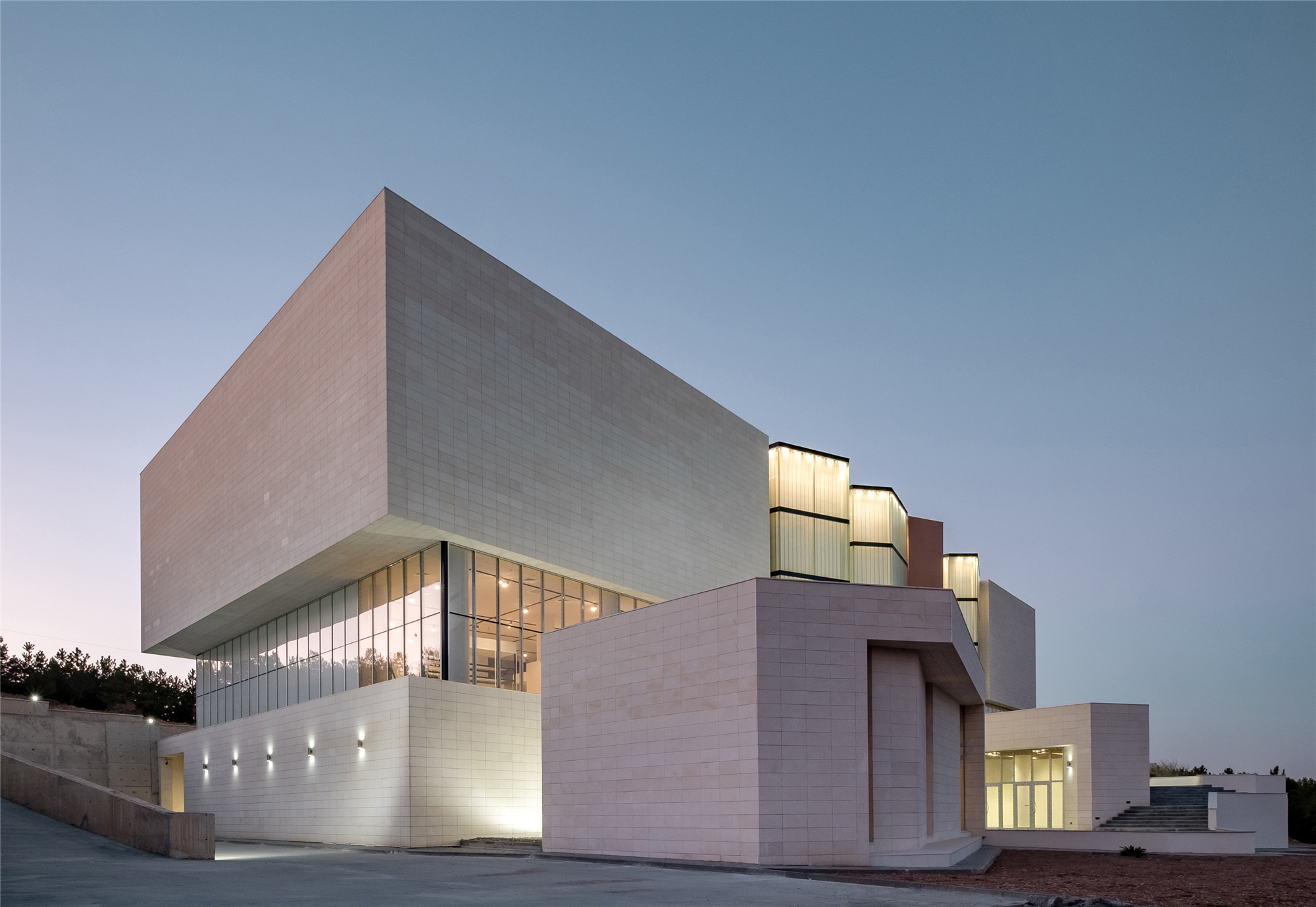
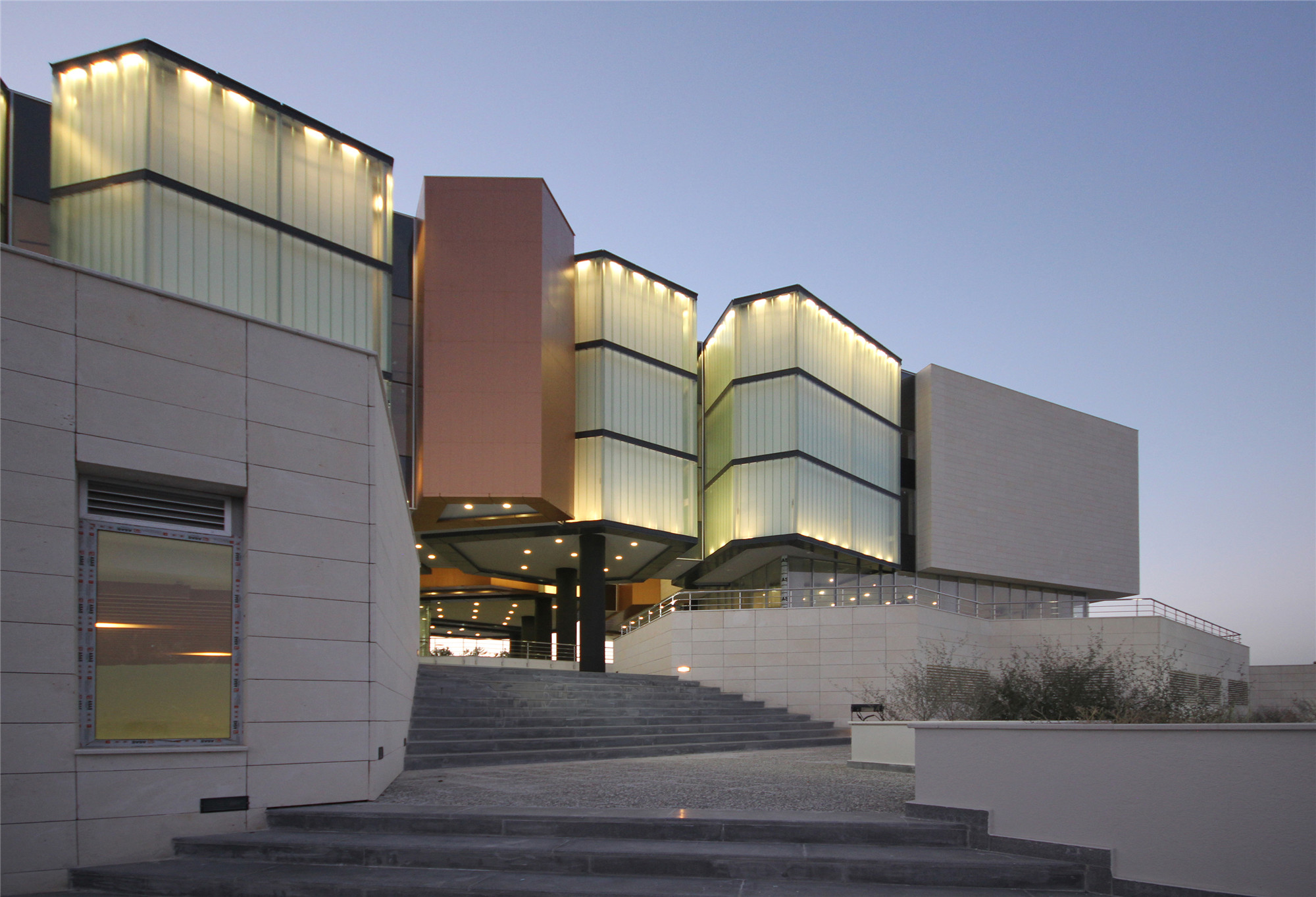
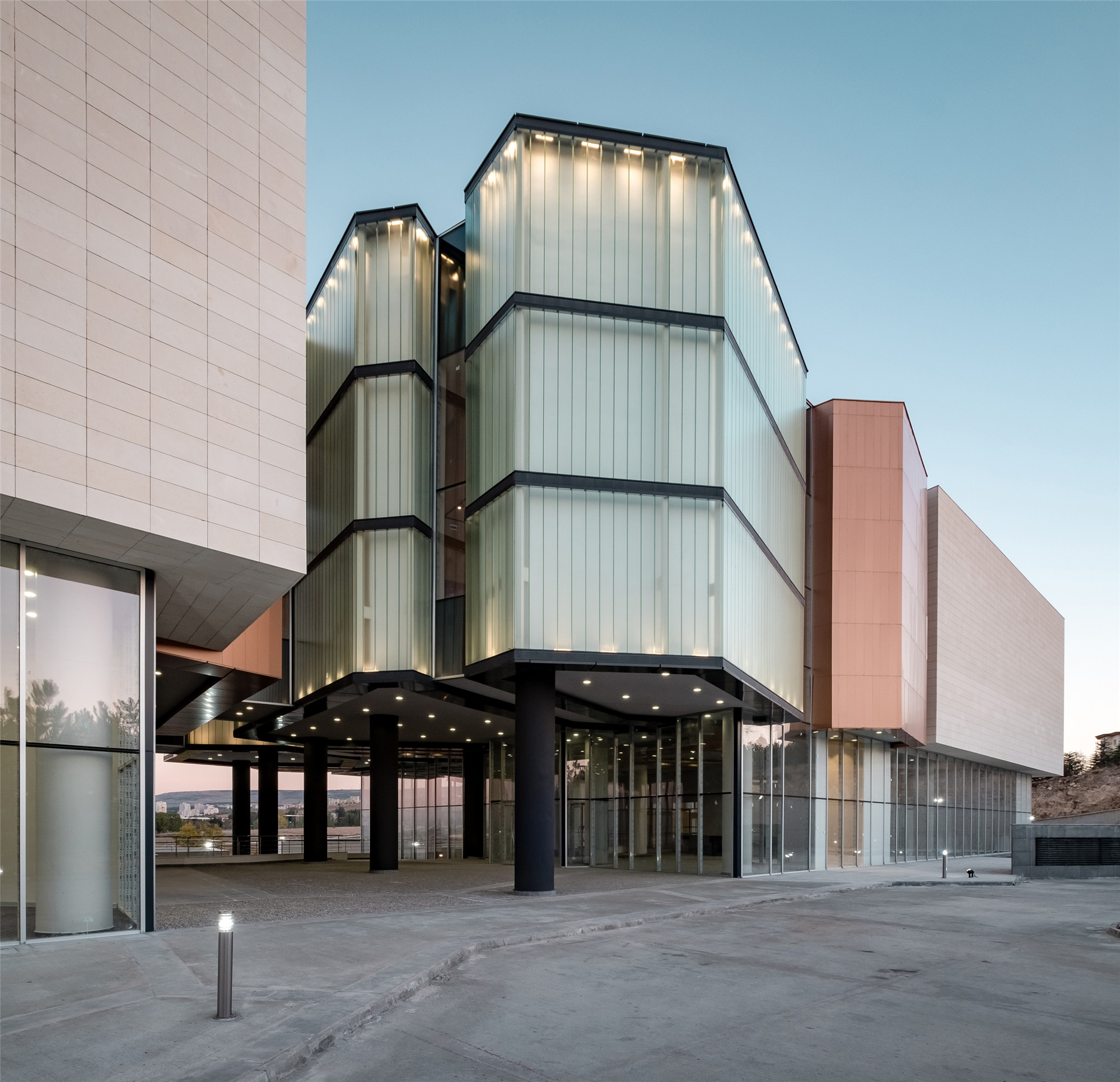
尽管研究与展览功能在建筑内相互交织,但设计师为它们提供了单独的入口,分置于地面广场的两侧。研究中心包括了收藏室、实验室、科学家办公室、行政办公室、图书馆和会议厅。博物馆则在上层与底层的空间中布置了动物学、医学和人类学的展厅。较低的楼层则用来布置植物学的展览空间,因为这些空间与花园相连,并在其中预留了一组供未来开发使用是温室。
Separate entrances are provided for research and museum spaces, facing each other across the ground plaza, even though these functions are intertwined throughout the building. The research facilities include collections, laboratories, offices for scientists, administration, library and a meeting hall. The museum is composed of exhibition halls for Zoology, Medical Sciences and Anthropology on upper and ground floors. The lower floor will house the Botanical exhibit, as these spaces are connected with the gardens in the topography, in which a set of greenhouses are planned for future development.

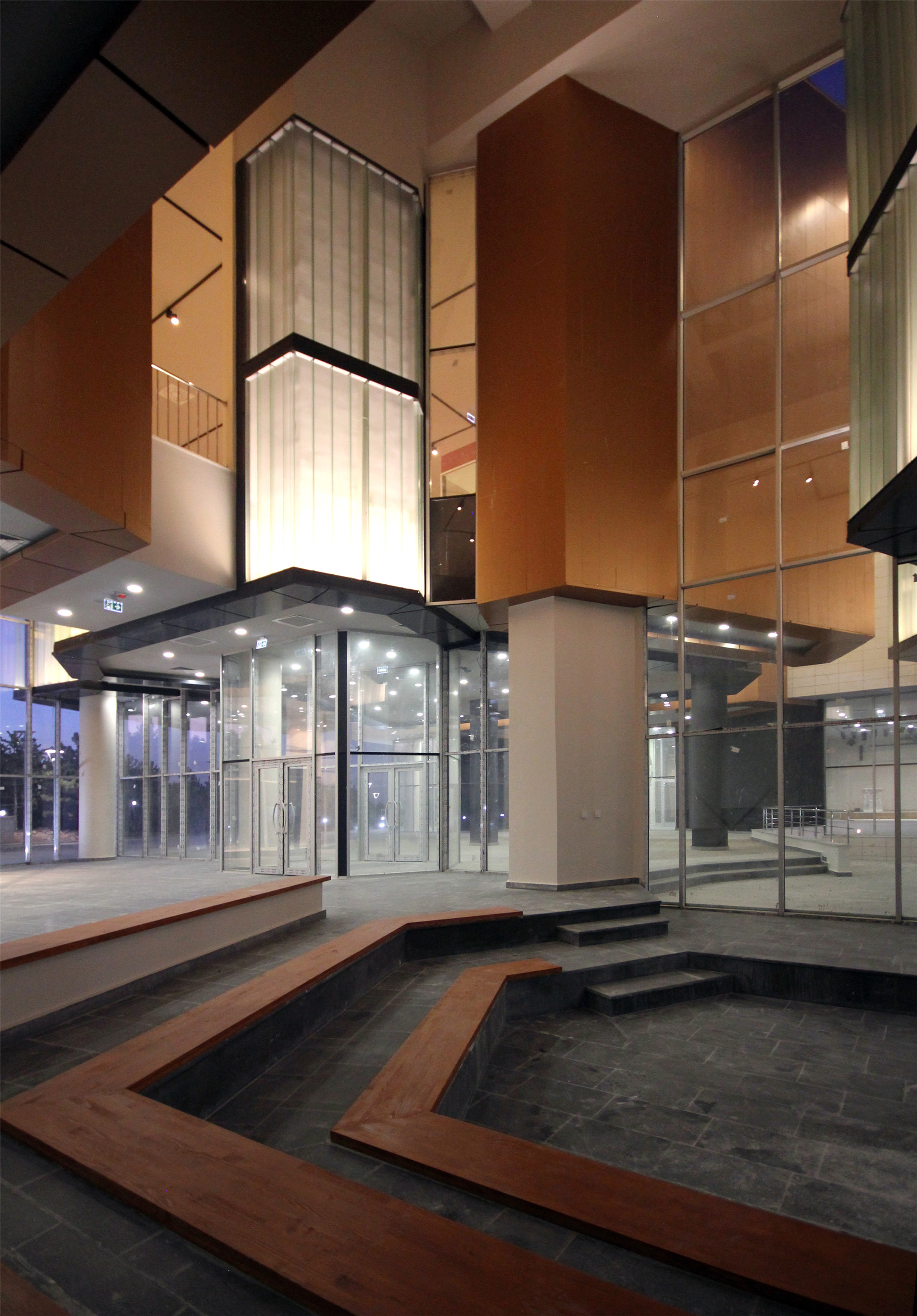
开放与封闭空间的集合逻辑遵循着几何分割的规则,这种规则在很多生物现象中都有体现。生物多样性的主题下的展览内容,属于一个非常广泛的科学学科范畴,在尺寸上也有着较大差异。因此,设计师希望空间被划分开来,以分别获得各自的主题,同时为了保持连贯,这些空间还能相连起来。
The architectonic logic of open and closed spaces follows an order of geometric compartmentation which is manifest in numerous biological phenomena. The exhibition material falling under the topic of biodiversity belong to a very wide spectrum of scientific disciplines and have a broad variation of sizes, dimensions and scales. Therefore, the spaces are desired to be fragmented so that they could be thematized separately, yet continuous and connected for coherence.
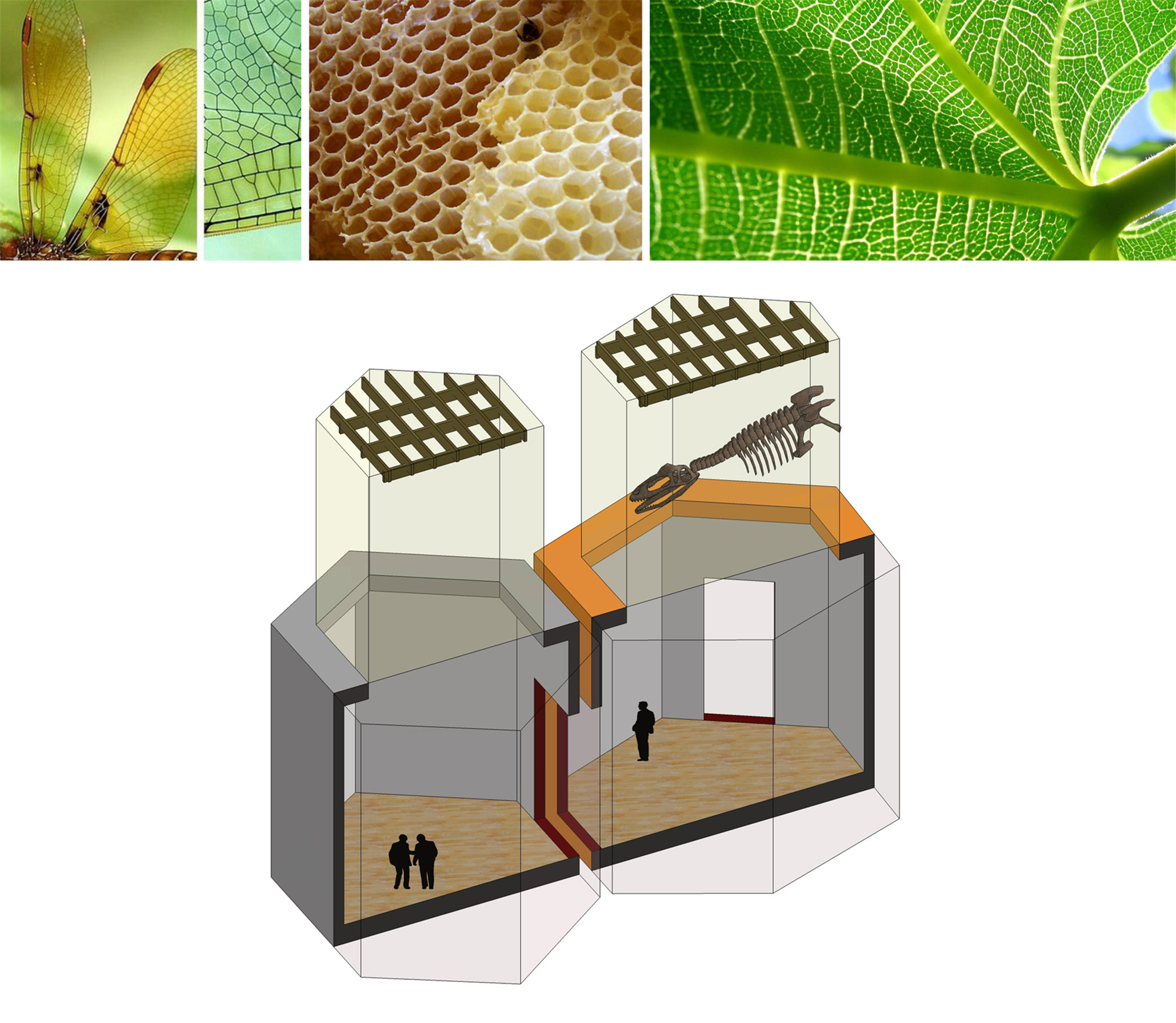

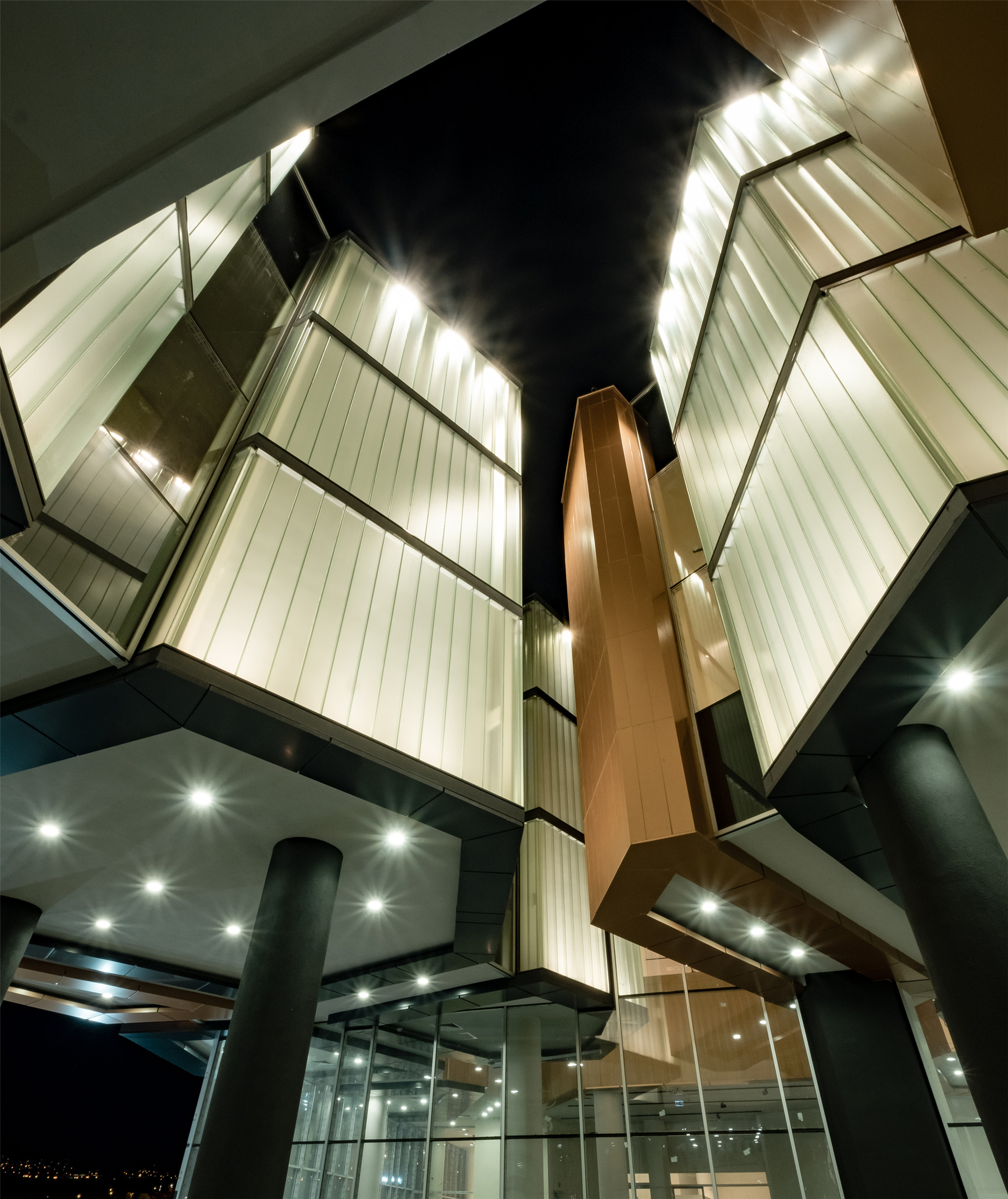
在计划中,大部分展览材料来源于科学机构,以及科学界的领导人。因此,在博物馆成立之初,科学界就有望积极参与到生物多样性的建设之中。这一建筑将超过服务于科学研究的功能属性,将肩负保护景观与培养科学社区的挑战。
A significant body of the exhibited materials are planned to originate from the holdings of scientific institutions and leaders of the scientific community. Therefore, an active participation on behalf of the scientific community on biodiversity is expected, upon the inception of the museum. The Museum and Center for Biodiversity building is poised to go beyond its program that serves science and academia and accept the challenges of landscape preservation and cultivating scientific communities.
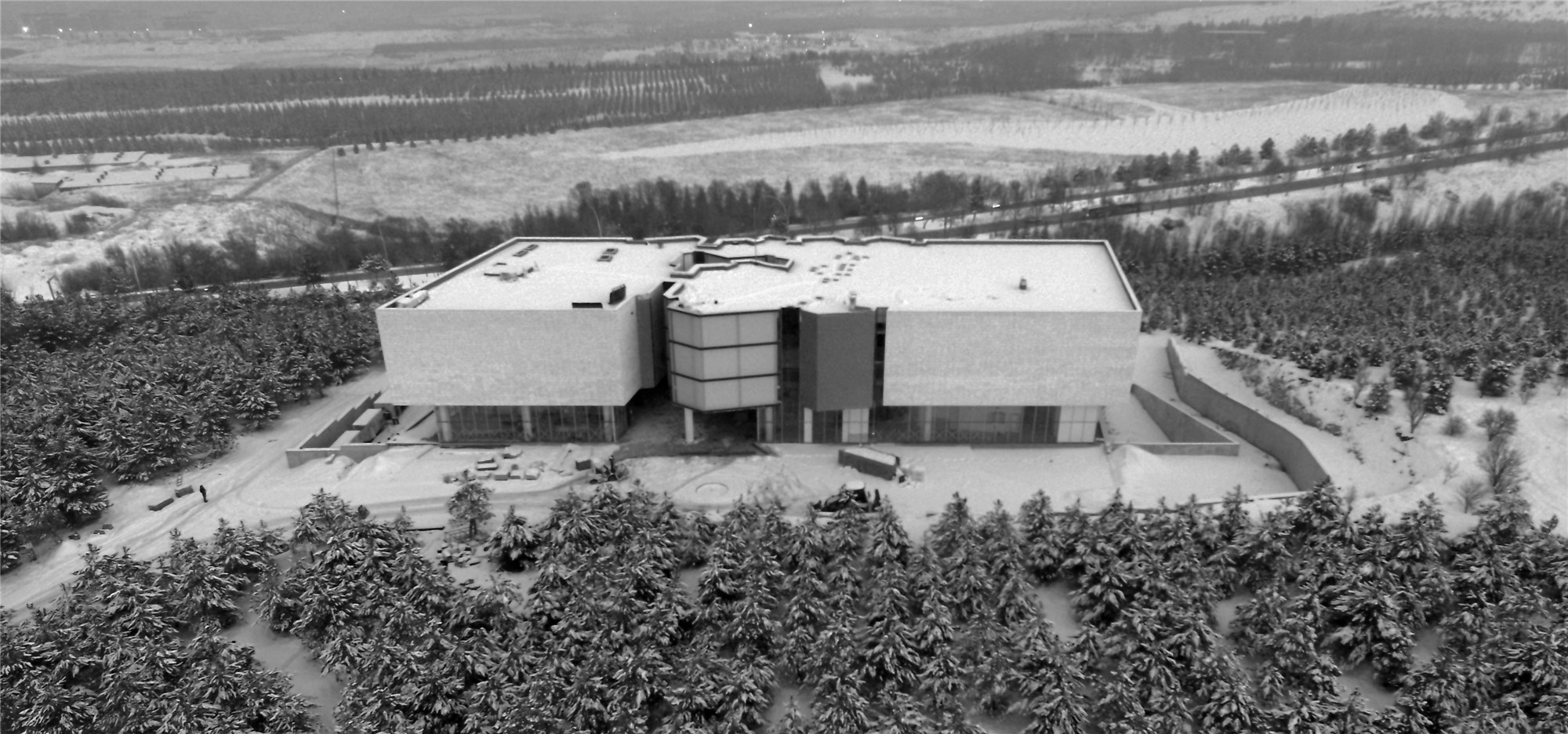
设计图纸 ▽
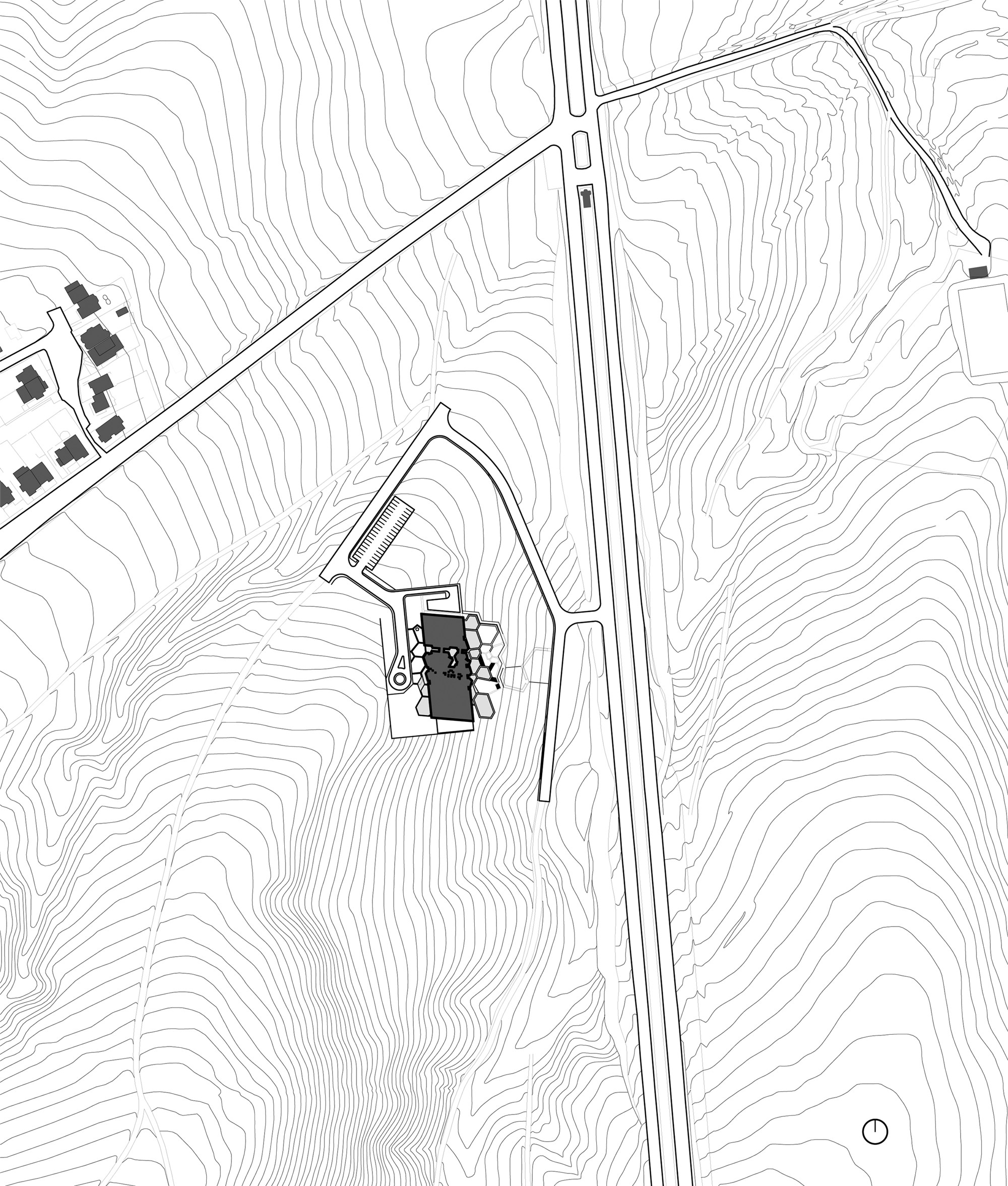
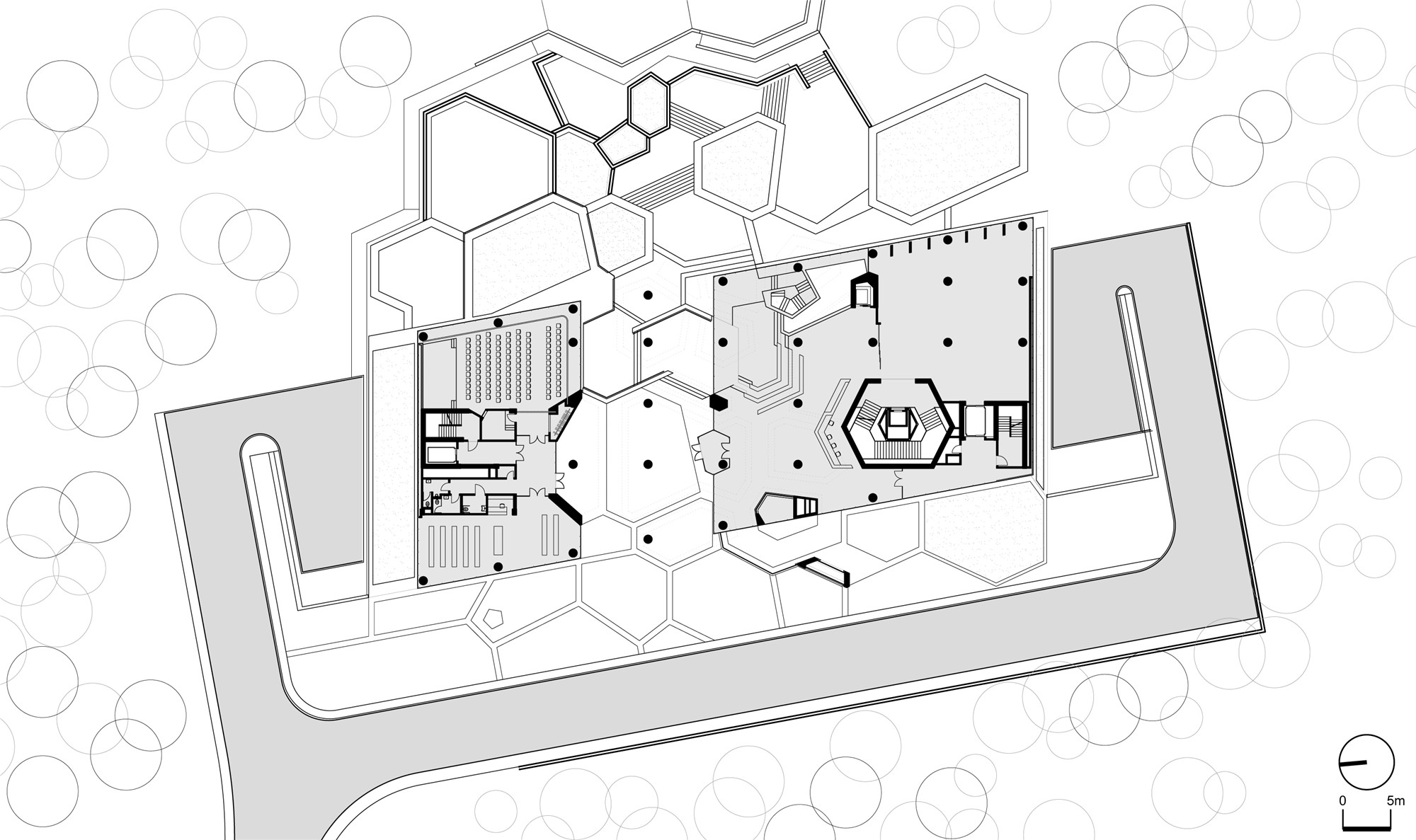



完整项目信息
Project Name: Hacettepe University - Museum and Center For Biodiversity
Location: Ankara
Project Dates: 2013-2014
Construction Dates: 2015-2018
Architectural Design: Erkal Architects
Lead Architect: Emre Erka
Project Team: Atakan Palaşoğlu, Demet Yüce, Nurcan Bayrakcı, Bekir Aşçıoğlu
Client: Hacettepe University
Contractor: SMG İnşaat
Covered Area: 6500 m2
Structural Engineering: Levent Aksaray Engineering
Mechanical Engineering: Prosel Engineering
Electrical Engineering: Kemal Güravşar, Emrah Güravşar, Promete Engineering
Photography: Yercekim Architectural Photography
版权声明:本文由Erkal Architects授权发布,欢迎转发,禁止以有方编辑版本转载。
投稿邮箱:media@archiposition.com
上一篇:慕尼黑模块化小学:高识别性的连续筒拱 / wulf architekten
下一篇:No. 31:从“形”到细节的改造 / 如恩设计研究室